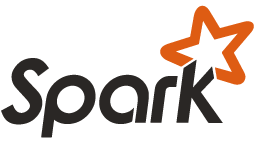#
# Licensed to the Apache Software Foundation (ASF) under one or more
# contributor license agreements. See the NOTICE file distributed with
# this work for additional information regarding copyright ownership.
# The ASF licenses this file to You under the Apache License, Version 2.0
# (the "License"); you may not use this file except in compliance with
# the License. You may obtain a copy of the License at
#
# http://www.apache.org/licenses/LICENSE-2.0
#
# Unless required by applicable law or agreed to in writing, software
# distributed under the License is distributed on an "AS IS" BASIS,
# WITHOUT WARRANTIES OR CONDITIONS OF ANY KIND, either express or implied.
# See the License for the specific language governing permissions and
# limitations under the License.
#
from pyspark import since
from pyspark.ml.util import keyword_only
from pyspark.ml.wrapper import JavaEstimator, JavaModel
from pyspark.ml.param.shared import *
from pyspark.mllib.common import inherit_doc
__all__ = ['KMeans', 'KMeansModel']
[docs]class KMeansModel(JavaModel):
"""
Model fitted by KMeans.
.. versionadded:: 1.5.0
"""
@since("1.5.0")
[docs] def clusterCenters(self):
"""Get the cluster centers, represented as a list of NumPy arrays."""
return [c.toArray() for c in self._call_java("clusterCenters")]
@inherit_doc
[docs]class KMeans(JavaEstimator, HasFeaturesCol, HasPredictionCol, HasMaxIter, HasTol, HasSeed):
"""
K-means clustering with support for multiple parallel runs and a k-means++ like initialization
mode (the k-means|| algorithm by Bahmani et al). When multiple concurrent runs are requested,
they are executed together with joint passes over the data for efficiency.
>>> from pyspark.mllib.linalg import Vectors
>>> data = [(Vectors.dense([0.0, 0.0]),), (Vectors.dense([1.0, 1.0]),),
... (Vectors.dense([9.0, 8.0]),), (Vectors.dense([8.0, 9.0]),)]
>>> df = sqlContext.createDataFrame(data, ["features"])
>>> kmeans = KMeans(k=2, seed=1)
>>> model = kmeans.fit(df)
>>> centers = model.clusterCenters()
>>> len(centers)
2
>>> transformed = model.transform(df).select("features", "prediction")
>>> rows = transformed.collect()
>>> rows[0].prediction == rows[1].prediction
True
>>> rows[2].prediction == rows[3].prediction
True
.. versionadded:: 1.5.0
"""
# a placeholder to make it appear in the generated doc
k = Param(Params._dummy(), "k", "number of clusters to create")
initMode = Param(Params._dummy(), "initMode",
"the initialization algorithm. This can be either \"random\" to " +
"choose random points as initial cluster centers, or \"k-means||\" " +
"to use a parallel variant of k-means++")
initSteps = Param(Params._dummy(), "initSteps", "steps for k-means initialization mode")
@keyword_only
def __init__(self, featuresCol="features", predictionCol="prediction", k=2,
initMode="k-means||", initSteps=5, tol=1e-4, maxIter=20, seed=None):
"""
__init__(self, featuresCol="features", predictionCol="prediction", k=2, \
initMode="k-means||", initSteps=5, tol=1e-4, maxIter=20, seed=None)
"""
super(KMeans, self).__init__()
self._java_obj = self._new_java_obj("org.apache.spark.ml.clustering.KMeans", self.uid)
self.k = Param(self, "k", "number of clusters to create")
self.initMode = Param(self, "initMode",
"the initialization algorithm. This can be either \"random\" to " +
"choose random points as initial cluster centers, or \"k-means||\" " +
"to use a parallel variant of k-means++")
self.initSteps = Param(self, "initSteps", "steps for k-means initialization mode")
self._setDefault(k=2, initMode="k-means||", initSteps=5, tol=1e-4, maxIter=20)
kwargs = self.__init__._input_kwargs
self.setParams(**kwargs)
def _create_model(self, java_model):
return KMeansModel(java_model)
@keyword_only
@since("1.5.0")
[docs] def setParams(self, featuresCol="features", predictionCol="prediction", k=2,
initMode="k-means||", initSteps=5, tol=1e-4, maxIter=20, seed=None):
"""
setParams(self, featuresCol="features", predictionCol="prediction", k=2, \
initMode="k-means||", initSteps=5, tol=1e-4, maxIter=20, seed=None)
Sets params for KMeans.
"""
kwargs = self.setParams._input_kwargs
return self._set(**kwargs)
@since("1.5.0")
[docs] def setK(self, value):
"""
Sets the value of :py:attr:`k`.
>>> algo = KMeans().setK(10)
>>> algo.getK()
10
"""
self._paramMap[self.k] = value
return self
@since("1.5.0")
[docs] def getK(self):
"""
Gets the value of `k`
"""
return self.getOrDefault(self.k)
@since("1.5.0")
[docs] def setInitMode(self, value):
"""
Sets the value of :py:attr:`initMode`.
>>> algo = KMeans()
>>> algo.getInitMode()
'k-means||'
>>> algo = algo.setInitMode("random")
>>> algo.getInitMode()
'random'
"""
self._paramMap[self.initMode] = value
return self
@since("1.5.0")
[docs] def getInitMode(self):
"""
Gets the value of `initMode`
"""
return self.getOrDefault(self.initMode)
@since("1.5.0")
[docs] def setInitSteps(self, value):
"""
Sets the value of :py:attr:`initSteps`.
>>> algo = KMeans().setInitSteps(10)
>>> algo.getInitSteps()
10
"""
self._paramMap[self.initSteps] = value
return self
@since("1.5.0")
[docs] def getInitSteps(self):
"""
Gets the value of `initSteps`
"""
return self.getOrDefault(self.initSteps)
if __name__ == "__main__":
import doctest
from pyspark.context import SparkContext
from pyspark.sql import SQLContext
globs = globals().copy()
# The small batch size here ensures that we see multiple batches,
# even in these small test examples:
sc = SparkContext("local[2]", "ml.clustering tests")
sqlContext = SQLContext(sc)
globs['sc'] = sc
globs['sqlContext'] = sqlContext
(failure_count, test_count) = doctest.testmod(globs=globs, optionflags=doctest.ELLIPSIS)
sc.stop()
if failure_count:
exit(-1)
